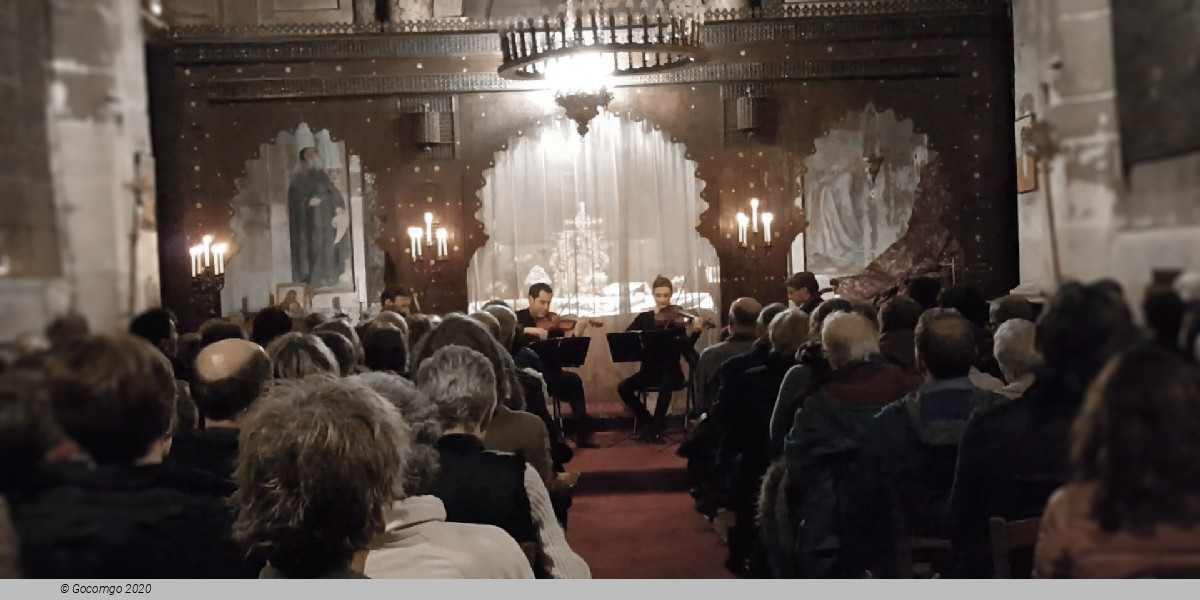Church of Saint-Ephrem (Paris, France)
Church of Saint-Ephrem

This ancient Latin quarter church was constructed in 1733 in the Corinthian style. It was used by a variety of different faiths until the late 19th Century CE when it became a center for Catholic social movements founded by Robert and Albert de Mun. The interior is classically embellished with an impressive collection of paintings, and Église Saint-Ephrem frequently features classical and choral concerts.
It stands on the site of the “College of the Lombards” founded in 1334, which in 1677 became the “College of the Irish” which trained missionaries for the conversion of England. Closed during the Revolution, it was returned to the Irish in 1815. Bought by the City of Paris, it has been assigned to the Syriac Catholic Mission since September 16, 1925.
The liturgy celebrated in this church is that of Jerusalem-Antioch, fixed at the beginning of the 6th century in the Aramaic-Syriac language. Hence the arrangements with the separation of the nave and the choir by a carved wooden chancel, closed by a curtain. On the left, the celebrant's seat is in front of the fence.
Above the altar, the Presentation in the Temple by D. Durand, (1740), and a classical glory. A few other paintings remained in place: a Resurrection of Christ and the Good Samaritan. The coat of arms above the door was hammered in 1794. It was here, in 1872, that Albert de Mun created the first Workers' Circles.
Behind the fence, recent paintings by Jeanne Gauzy evoke Saint Ephrem, Saint Ignatius of Antioch, and the intercession of Saint Ephrem with Mary. The altar is behind the curtain. The place of speech, on the right, is reserved for the deacon. A beautiful harp, and the mobile copper baptistery decorated with symbols: the tree and the serpent, signs of sin; the cross, the water, and the dove of the Spirit for grace are arranged on the left side.
On the walls of the nave, a series of icons present the main saints of the Syriac Church, monks, nuns, and martyrs of the first centuries.
At the back of the church on the left, is the baptism of Christ. On the right, Mary reigns: in painting, as an icon covered in copper, and as a plaster statue by N.-D. from Lourdes.
Saint Ephrem the Syriac (306-373) was born in Nisibis, Mesopotamia. Ordained deacon, he will remain so all his life. He was a professor at the University of Nisibis when his city was offered to the Persians; in 353. He emigrated to Edessa with his fellow citizens. There he founded a School-University where he taught until his death. Ascetic, servant of the poor, and theologian, he is the initiator of Syriac sacred music. He was declared a Doctor of the Church in 1920.


